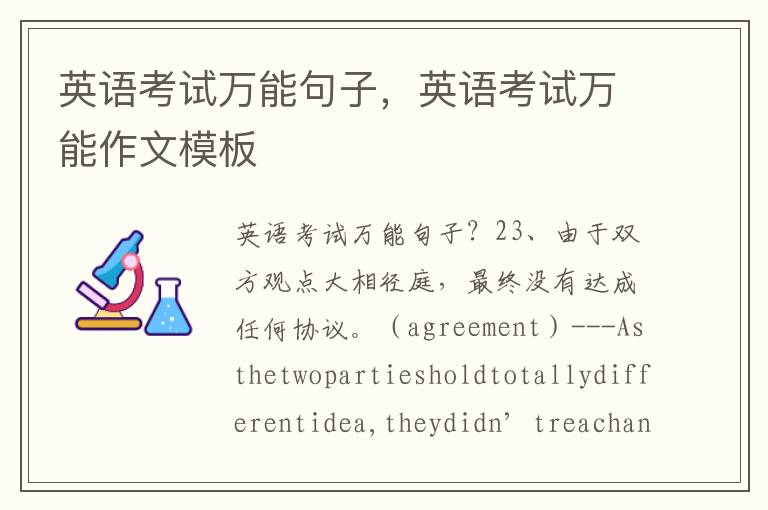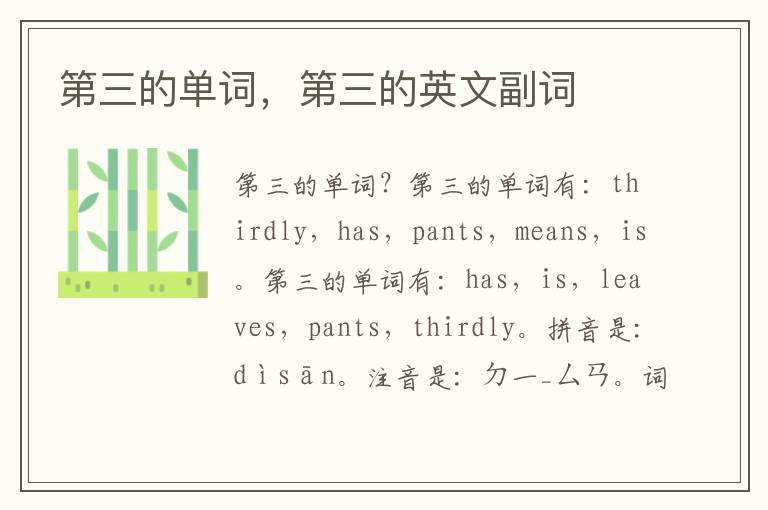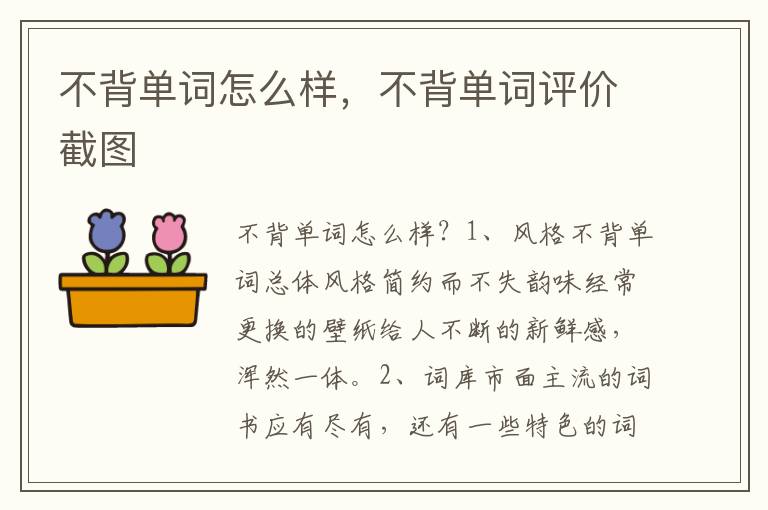【简介】感谢网友“雕龙文库”参与投稿,这里小编给大家分享一些[db:SEO标题],方便大家学习。
To read the scathing condemnation of Chinese telecoms equipment suppliers fired from Washington this week, you would think we still lived in another world. In that world, telecoms networks were built by national monopolies such as AT and T, France Telecomand British Telecom, and outsiders stayed away.
华盛顿方面本周对中国电信设备供应商发出的严厉谴责,读起来会让人以为我们仍生活在另一个世界。在那个世界里,电信网络是由AT and T、法国电信(France Telecomand)以及英国电信这样的国家垄断企业建设的,所有外来厂商都被拒之门外。
But we don’t.
但是,我们生活的这个世界并不是那个样子。
You know things have come to a pretty pass when US politicians throw their weight behind a French company because the alternative is worse. That would be the effect of barring Huaweiand ZTEfrom the US market on the grounds that they are shifty front organisations for the Chinese government and the People’s Liberation Army.
当美国的政客们因为没有更好的选择而要用自己的影响力支持一家法国公司时,情况显然已经变得很糟糕了。而以华为和中兴(ZTE)是中国政府和解放军的幌子为由禁止这两家企业进入美国市场,就会导致这种结果。
It would aid Alcatel-Lucent, the troubled 2006 merger of the French company with Lucent, descended from Western Electric of Cleveland, Ohio, which was bought by AT and T in 1881. Things have since moved on and Huawei Technologies and ZTE of Shenzhen in southern China are the new Western Electrics.
这种结果将有利于目前陷入困境的阿尔卡特-朗讯(Alcatel-Lucent)。阿尔卡特-朗讯由法国公司阿尔卡特(Alcatel)与前身为西电公司(Western Electric)的朗讯(Lucent)在2006年合并而成。西电当时位于俄亥俄州克利夫兰,它在1881年被AT and T收购,成为后者旗下企业。时过境迁,如今,位于华南深圳的华为和中兴成为了新的西电。
The US House of Representatives intelligence committee, with its demand to bar Huawei or ZTE from gaining US contracts or merging with US companies, is living in the past. The time to declare telecoms a strategic, protected industry like defence, was 20 years ago; now is the time to make a deal.
要求禁止华为和中兴获得美国合同以及与美国公司合并的,是仍活在过去的美国众议院情报委员会。将电信业视为像国防业那样的受保护的战略产业,是20年前的做法;现在是时候做出改变了。
“Huawei and ZTE represent something new: a former third-world country producing first-world technology. The American corporate psyche finds this difficult to handle, says John Quelch, dean of the China Europe International Business School in Shanghai.
上海中欧国际工商学院(China Europe International Business School)副院长约翰·奎尔奇(John Quelch)说:“华为与中兴代表着一种新现象:一个前第三世界国家在生产第一世界的技术。对此,美国企业在心理上很难接受。
It was obviously tough on the House intelligence committee, which has thrown many accusations at both companies, in particular Huawei, which has grown to share industry leadership with Ericsson of Sweden since it was founded in 1987 by a former PLA officer.
众议院情报委员会显然就难以接受这一点,它已对这两家公司提出很多指控,特别是对华为——这家1987年由一位前解放军军官建立的公司,现已成长为与瑞典爱立信(Ericsson)比肩的业界领导者。
This sounds dodgy, given the PLA’s ambitions in cyber espionage and mass efforts by Chinese hackers to acquire US military and industrial secrets. Former executives of Nortel Networks, the Canadian group that was Huawei’s rival until it went into Chapter 11 bankruptcy protection in 2010, complained of constantly being hacked from China in the 2000s.
考虑到解放军在网络间谍活动方面的野心、以及中国黑客发起的获取美国军事与工业秘密的大量行动,向这两家公司敞开大门听起来的确挺危险。北电网络(Nortel Networks)的前高管就曾抱怨在上个十年经常受到中国黑客攻击,这家加拿大集团在2010年依照《破产法》第11章(Chapter 11)申请破产保护之前,曾是华为的竞争对手。
“A number of states are engaged in economic espionage and China is the most prolific, says Mike McConnell, a former head of the US National Security Agency who is vice-chairman of Booz Allen Hamilton, the consultancy. “Research and development costs a lot and it is cheaper to steal it.
博思艾伦咨询公司(Booz Allen Hamilton)副主席、前美国国家安全局(NSA)局长麦克·麦康奈尔(Mike McConnell)说:“许多国家都在搞经济间谍活动,中国在这方面捞到的好处最多。自主研发成本太高,偷则要便宜得多。
The chief accusation is that, if permitted to build networks for operators such as AT and T and Verizon, Huawei would build traps into the software and hardware. Its friends in the Communist party could then use them to hack databases or to bring the networks down in a war.
华为面临的最主要指控是,若美国政府允许它为AT and T和Verizon等运营商建设网络,它可能会在软硬件中留下后门——如此一来,华为在中共内的朋友们就会利用这些后门攻入数据库或在战时关闭这些网络。
It is foolish to ignore the potential security holes in telecoms networks. The NSA has itself been accused of spying on US and foreign internet traffic by monitoring traffic passing over American networks.
无视电信网络中的潜在安全漏洞当然很愚蠢。美国国家安全局自己就曾被人指责通过监听美国网络中传递的信息来窥探美国及外国互联网中的情报。
But barring Chinese companies does not solve it. Alcatel-Lucent has a venture in China with Shanghai Bell and much of the equipment used by Ericsson and others is made in China. If the party and the PLA wanted to be sneaky they would tamper with these components.
但禁止中国公司进入美国市场解决不了这个问题。阿尔卡特-朗讯在中国与上海贝尔(Shanghai Bell)建有合资企业,爱立信及其他厂商使用的许多设备都是在中国生产的。如果中共与解放军想搞点小动作,他们完全可以从这些设备上下手。
Nor is there direct evidence of malfeasance against Huawei and ZTE in the report, although one section is classified. Meanwhile, the committee alleges that the companies breach patents and enjoy support from China in the form of soft loans.
而且,众议院情报委员会的报告也没有给出华为和中兴从事不法活动的直接证据,尽管报告的某一部分是保密的。与此同时,该委员会还指责这两家企业违反专利法以及享受中国以软贷款形式提供的扶持。
Both could be true but they are the stuff of trade and intellectual property disputes rather than an intelligence concern. The committee undermines its case by sounding as if it seeks any excuse to exclude Chinese competitors.
这两个指责也许都符合事实,但它们属于贸易与知识产权争议范畴,而不是什么情报安全方面的担忧。该委员会的行为听起来像是在寻找一切借口将中国竞争者拒之门外,它提出的论点因此受到了削弱。
The companies have not helped themselves. Huawei is a reclusive outfit that did not publish the names of its directors until a few years ago. Sun Yafang, its chairwoman, is reported to have once worked at the Ministry of State Security and, like other companies, it has an internal Communist party committee whose exact purpose is mysterious.
不过,这两家企业的所作所为也没有对自身形成帮助。华为是一家行事隐秘的企业,直到几年前才公开了董事们的姓名。据报道,华为的女董事长孙亚芳曾在中国国家安全部工作。另外,像其他企业一样,华为内部也设有职责神秘的党委。
Yet Huawei is not easily categorised as a state stooge. It is not state-owned (ZTE has closer links with Guangdong province) and was among start-ups that flourished in Shenzhen’s economic zone in the 1990s. It is still private and claims to be wholly employee-owned. “Huawei is an independent, quite arrogant, company, says Duncan Clark, a Beijing-based consultant.
尽管如此,人们也很难把华为归为中国政府的傀儡。华为不是国有企业(中兴与广东省政府的联系则更为紧密),而是上世纪90年代深圳经济特区兴起的创业型公司。华为目前仍是民营企业,而且号称是全员持股。驻北京的咨询师邓肯·克拉克(Duncan Clark)说:“华为是家独立且自视甚高的企业。
In some ways, it is a symbol of the very China the west has an interest in encouraging. China’s government declared in 2006 that telecoms was one of seven strategic industries over which state-owned enterprises should retain “absolute control yet Huawei was built by an entrepreneur who admires Silicon Valley.
某种程度上说,其实华为才是西方有意倡导的中国模式的象征。2006年中国政府宣布,电信业是七大战略产业之一,在这些产业中国有企业应当保持“绝对控制,而华为却是由一位仰慕硅谷的企业家创办的民企。
Huawei seized 20 per cent of the global market, according to Bernstein Research, by producing equipment at lower prices than western rivals, triggering a wave of consolidation. In the US, where competition has been effectively curbed, Ericsson and Alcatel-Lucent have a duopoly.
伯恩斯坦研究公司(Bernstein Research)表示,通过以比西方竞争对手更低的成本生产设备,华为占据了全球20%的市场,导致电信业出现一波整合浪潮。在竞争被有效抑制的美国市场,则是爱立信与阿尔卡特-朗讯双头垄断的格局。
The best thing for US consumers would be to admit Huawei and ZTE with safeguards. In the UK, Huawei’s equipment is examined by former staff of GCHQ, the UK intelligence service, before being used by BT. The US and Australia, which has barred Huawei from a planned network, could go further.
最有利于美国消费者的选择,应该是允许华为和中兴进入美国市场,同时采取防范措施。在英国,华为的设备在交付英国电信使用前,要经过英国情报机构“政府通信总部(GCHQ)前工作人员的检验。美国及禁止华为投标本国一个网络项目的澳大利亚,完全可以提出进一步的要求。
The US might require Huawei to list in London or New York to illuminate who owns the company; submit technology to the NSA; and separate its US division like a defence group. It could even demand the dissolution of its Communist party committee. What it cannot do is recreate the past.
美国可以要求华为在伦敦或纽约上市,以明晰所有权结构;可以要求它将技术提交给美国国家安全局;可以像对待防务公司那样要求其美国分部与公司其余部分分开经营;甚至可以要求它解散党委。而美国不应该做的,是重建过去的世界。
To read the scathing condemnation of Chinese telecoms equipment suppliers fired from Washington this week, you would think we still lived in another world. In that world, telecoms networks were built by national monopolies such as AT and T, France Telecomand British Telecom, and outsiders stayed away.
华盛顿方面本周对中国电信设备供应商发出的严厉谴责,读起来会让人以为我们仍生活在另一个世界。在那个世界里,电信网络是由AT and T、法国电信(France Telecomand)以及英国电信这样的国家垄断企业建设的,所有外来厂商都被拒之门外。
But we don’t.
但是,我们生活的这个世界并不是那个样子。
You know things have come to a pretty pass when US politicians throw their weight behind a French company because the alternative is worse. That would be the effect of barring Huaweiand ZTEfrom the US market on the grounds that they are shifty front organisations for the Chinese government and the People’s Liberation Army.
当美国的政客们因为没有更好的选择而要用自己的影响力支持一家法国公司时,情况显然已经变得很糟糕了。而以华为和中兴(ZTE)是中国政府和解放军的幌子为由禁止这两家企业进入美国市场,就会导致这种结果。
It would aid Alcatel-Lucent, the troubled 2006 merger of the French company with Lucent, descended from Western Electric of Cleveland, Ohio, which was bought by AT and T in 1881. Things have since moved on and Huawei Technologies and ZTE of Shenzhen in southern China are the new Western Electrics.
这种结果将有利于目前陷入困境的阿尔卡特-朗讯(Alcatel-Lucent)。阿尔卡特-朗讯由法国公司阿尔卡特(Alcatel)与前身为西电公司(Western Electric)的朗讯(Lucent)在2006年合并而成。西电当时位于俄亥俄州克利夫兰,它在1881年被AT and T收购,成为后者旗下企业。时过境迁,如今,位于华南深圳的华为和中兴成为了新的西电。
The US House of Representatives intelligence committee, with its demand to bar Huawei or ZTE from gaining US contracts or merging with US companies, is living in the past. The time to declare telecoms a strategic, protected industry like defence, was 20 years ago; now is the time to make a deal.
要求禁止华为和中兴获得美国合同以及与美国公司合并的,是仍活在过去的美国众议院情报委员会。将电信业视为像国防业那样的受保护的战略产业,是20年前的做法;现在是时候做出改变了。
“Huawei and ZTE represent something new: a former third-world country producing first-world technology. The American corporate psyche finds this difficult to handle, says John Quelch, dean of the China Europe International Business School in Shanghai.
上海中欧国际工商学院(China Europe International Business School)副院长约翰·奎尔奇(John Quelch)说:“华为与中兴代表着一种新现象:一个前第三世界国家在生产第一世界的技术。对此,美国企业在心理上很难接受。
It was obviously tough on the House intelligence committee, which has thrown many accusations at both companies, in particular Huawei, which has grown to share industry leadership with Ericsson of Sweden since it was founded in 1987 by a former PLA officer.
众议院情报委员会显然就难以接受这一点,它已对这两家公司提出很多指控,特别是对华为——这家1987年由一位前解放军军官建立的公司,现已成长为与瑞典爱立信(Ericsson)比肩的业界领导者。
This sounds dodgy, given the PLA’s ambitions in cyber espionage and mass efforts by Chinese hackers to acquire US military and industrial secrets. Former executives of Nortel Networks, the Canadian group that was Huawei’s rival until it went into Chapter 11 bankruptcy protection in 2010, complained of constantly being hacked from China in the 2000s.
考虑到解放军在网络间谍活动方面的野心、以及中国黑客发起的获取美国军事与工业秘密的大量行动,向这两家公司敞开大门听起来的确挺危险。北电网络(Nortel Networks)的前高管就曾抱怨在上个十年经常受到中国黑客攻击,这家加拿大集团在2010年依照《破产法》第11章(Chapter 11)申请破产保护之前,曾是华为的竞争对手。
“A number of states are engaged in economic espionage and China is the most prolific, says Mike McConnell, a former head of the US National Security Agency who is vice-chairman of Booz Allen Hamilton, the consultancy. “Research and development costs a lot and it is cheaper to steal it.
博思艾伦咨询公司(Booz Allen Hamilton)副主席、前美国国家安全局(NSA)局长麦克·麦康奈尔(Mike McConnell)说:“许多国家都在搞经济间谍活动,中国在这方面捞到的好处最多。自主研发成本太高,偷则要便宜得多。
The chief accusation is that, if permitted to build networks for operators such as AT and T and Verizon, Huawei would build traps into the software and hardware. Its friends in the Communist party could then use them to hack databases or to bring the networks down in a war.
华为面临的最主要指控是,若美国政府允许它为AT and T和Verizon等运营商建设网络,它可能会在软硬件中留下后门——如此一来,华为在中共内的朋友们就会利用这些后门攻入数据库或在战时关闭这些网络。
It is foolish to ignore the potential security holes in telecoms networks. The NSA has itself been accused of spying on US and foreign internet traffic by monitoring traffic passing over American networks.
无视电信网络中的潜在安全漏洞当然很愚蠢。美国国家安全局自己就曾被人指责通过监听美国网络中传递的信息来窥探美国及外国互联网中的情报。
But barring Chinese companies does not solve it. Alcatel-Lucent has a venture in China with Shanghai Bell and much of the equipment used by Ericsson and others is made in China. If the party and the PLA wanted to be sneaky they would tamper with these components.
但禁止中国公司进入美国市场解决不了这个问题。阿尔卡特-朗讯在中国与上海贝尔(Shanghai Bell)建有合资企业,爱立信及其他厂商使用的许多设备都是在中国生产的。如果中共与解放军想搞点小动作,他们完全可以从这些设备上下手。
Nor is there direct evidence of malfeasance against Huawei and ZTE in the report, although one section is classified. Meanwhile, the committee alleges that the companies breach patents and enjoy support from China in the form of soft loans.
而且,众议院情报委员会的报告也没有给出华为和中兴从事不法活动的直接证据,尽管报告的某一部分是保密的。与此同时,该委员会还指责这两家企业违反专利法以及享受中国以软贷款形式提供的扶持。
Both could be true but they are the stuff of trade and intellectual property disputes rather than an intelligence concern. The committee undermines its case by sounding as if it seeks any excuse to exclude Chinese competitors.
这两个指责也许都符合事实,但它们属于贸易与知识产权争议范畴,而不是什么情报安全方面的担忧。该委员会的行为听起来像是在寻找一切借口将中国竞争者拒之门外,它提出的论点因此受到了削弱。
The companies have not helped themselves. Huawei is a reclusive outfit that did not publish the names of its directors until a few years ago. Sun Yafang, its chairwoman, is reported to have once worked at the Ministry of State Security and, like other companies, it has an internal Communist party committee whose exact purpose is mysterious.
不过,这两家企业的所作所为也没有对自身形成帮助。华为是一家行事隐秘的企业,直到几年前才公开了董事们的姓名。据报道,华为的女董事长孙亚芳曾在中国国家安全部工作。另外,像其他企业一样,华为内部也设有职责神秘的党委。
Yet Huawei is not easily categorised as a state stooge. It is not state-owned (ZTE has closer links with Guangdong province) and was among start-ups that flourished in Shenzhen’s economic zone in the 1990s. It is still private and claims to be wholly employee-owned. “Huawei is an independent, quite arrogant, company, says Duncan Clark, a Beijing-based consultant.
尽管如此,人们也很难把华为归为中国政府的傀儡。华为不是国有企业(中兴与广东省政府的联系则更为紧密),而是上世纪90年代深圳经济特区兴起的创业型公司。华为目前仍是民营企业,而且号称是全员持股。驻北京的咨询师邓肯·克拉克(Duncan Clark)说:“华为是家独立且自视甚高的企业。
In some ways, it is a symbol of the very China the west has an interest in encouraging. China’s government declared in 2006 that telecoms was one of seven strategic industries over which state-owned enterprises should retain “absolute control yet Huawei was built by an entrepreneur who admires Silicon Valley.
某种程度上说,其实华为才是西方有意倡导的中国模式的象征。2006年中国政府宣布,电信业是七大战略产业之一,在这些产业中国有企业应当保持“绝对控制,而华为却是由一位仰慕硅谷的企业家创办的民企。
Huawei seized 20 per cent of the global market, according to Bernstein Research, by producing equipment at lower prices than western rivals, triggering a wave of consolidation. In the US, where competition has been effectively curbed, Ericsson and Alcatel-Lucent have a duopoly.
伯恩斯坦研究公司(Bernstein Research)表示,通过以比西方竞争对手更低的成本生产设备,华为占据了全球20%的市场,导致电信业出现一波整合浪潮。在竞争被有效抑制的美国市场,则是爱立信与阿尔卡特-朗讯双头垄断的格局。
The best thing for US consumers would be to admit Huawei and ZTE with safeguards. In the UK, Huawei’s equipment is examined by former staff of GCHQ, the UK intelligence service, before being used by BT. The US and Australia, which has barred Huawei from a planned network, could go further.
最有利于美国消费者的选择,应该是允许华为和中兴进入美国市场,同时采取防范措施。在英国,华为的设备在交付英国电信使用前,要经过英国情报机构“政府通信总部(GCHQ)前工作人员的检验。美国及禁止华为投标本国一个网络项目的澳大利亚,完全可以提出进一步的要求。
The US might require Huawei to list in London or New York to illuminate who owns the company; submit technology to the NSA; and separate its US division like a defence group. It could even demand the dissolution of its Communist party committee. What it cannot do is recreate the past.
美国可以要求华为在伦敦或纽约上市,以明晰所有权结构;可以要求它将技术提交给美国国家安全局;可以像对待防务公司那样要求其美国分部与公司其余部分分开经营;甚至可以要求它解散党委。而美国不应该做的,是重建过去的世界。









